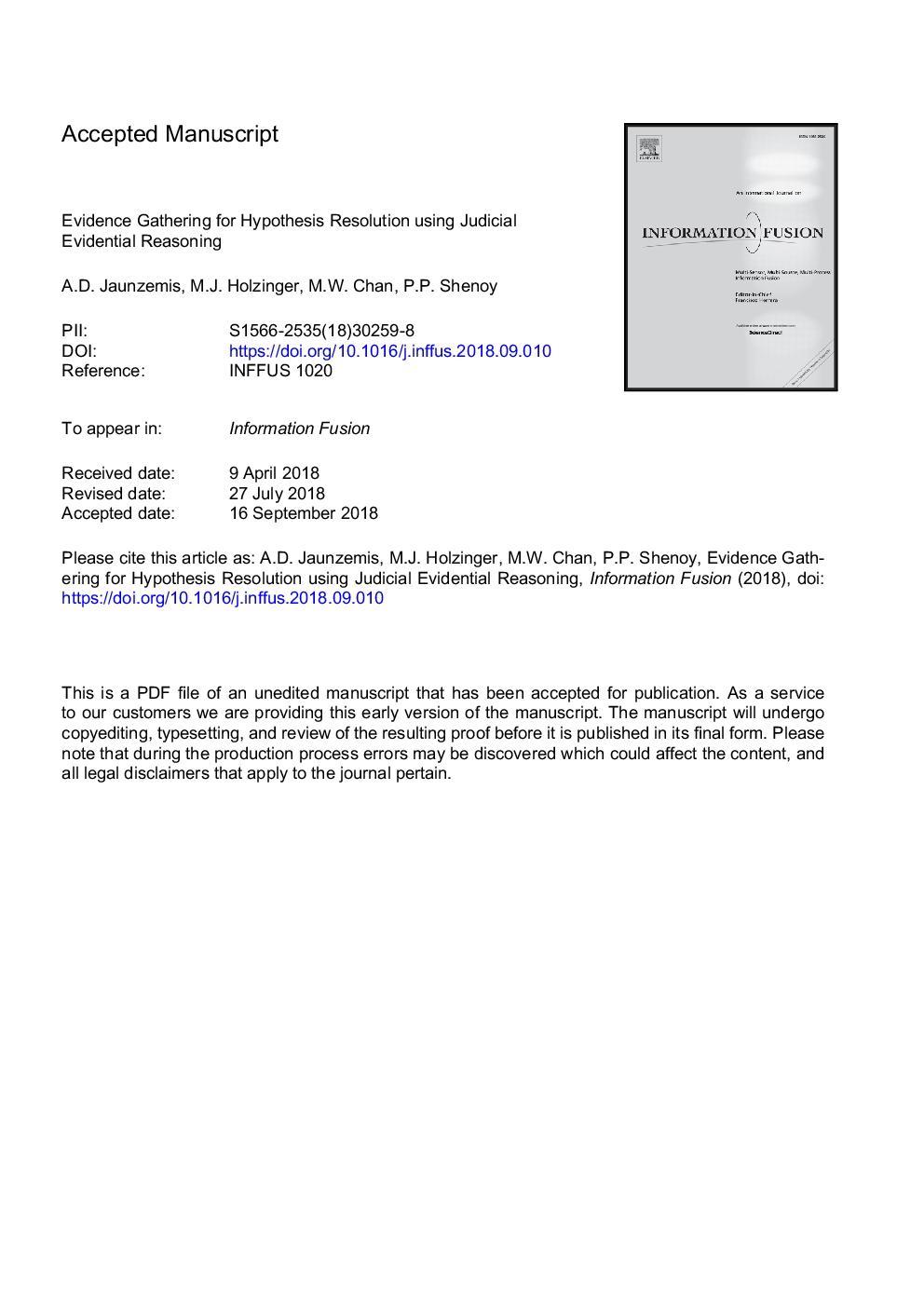| Article ID | Journal | Published Year | Pages | File Type |
|---|---|---|---|---|
| 11016431 | Information Fusion | 2019 | 54 Pages |
Abstract
Realistic decision-making often occurs with insufficient time to gather all possible evidence before a decision must be rendered, requiring an efficient process for prioritizing between potential action sequences. This work aims to develop a rigorous framework for gathering evidence to resolve hypotheses notwithstanding ambiguous, incomplete, and uncertain evidence. Studies have shown that decision-makers demonstrate several biases in decisions involving probability judgment, so decision-makers must be confident that the evidence-based hypothesis resolution is strong and impartial before declaring a resolution. The proposed Judicial Evidential Reasoning framework encodes decision-maker questions as rigorously testable hypotheses to be interrogated through evidence-gathering actions. Dempster-Shafer theory is applied to model hypothesis knowledge and quantify ambiguity, and an equal-effort heuristic is proposed to balance time-efficiency and impartiality. Adversarial optimization techniques are used to make many-hypothesis resolution computationally tractable. This work includes derivation of the generalized formulation, computational tractability considerations for improved performance, several illustrative examples, and application to a space situational awareness sensor network tasking scenario. The results show strong hypothesis resolution and robustness to fixation due to poor prior evidence.
Related Topics
Physical Sciences and Engineering
Computer Science
Computer Vision and Pattern Recognition
Authors
A.D. Jaunzemis, M.J. Holzinger, M.W. Chan, P.P. Shenoy,
